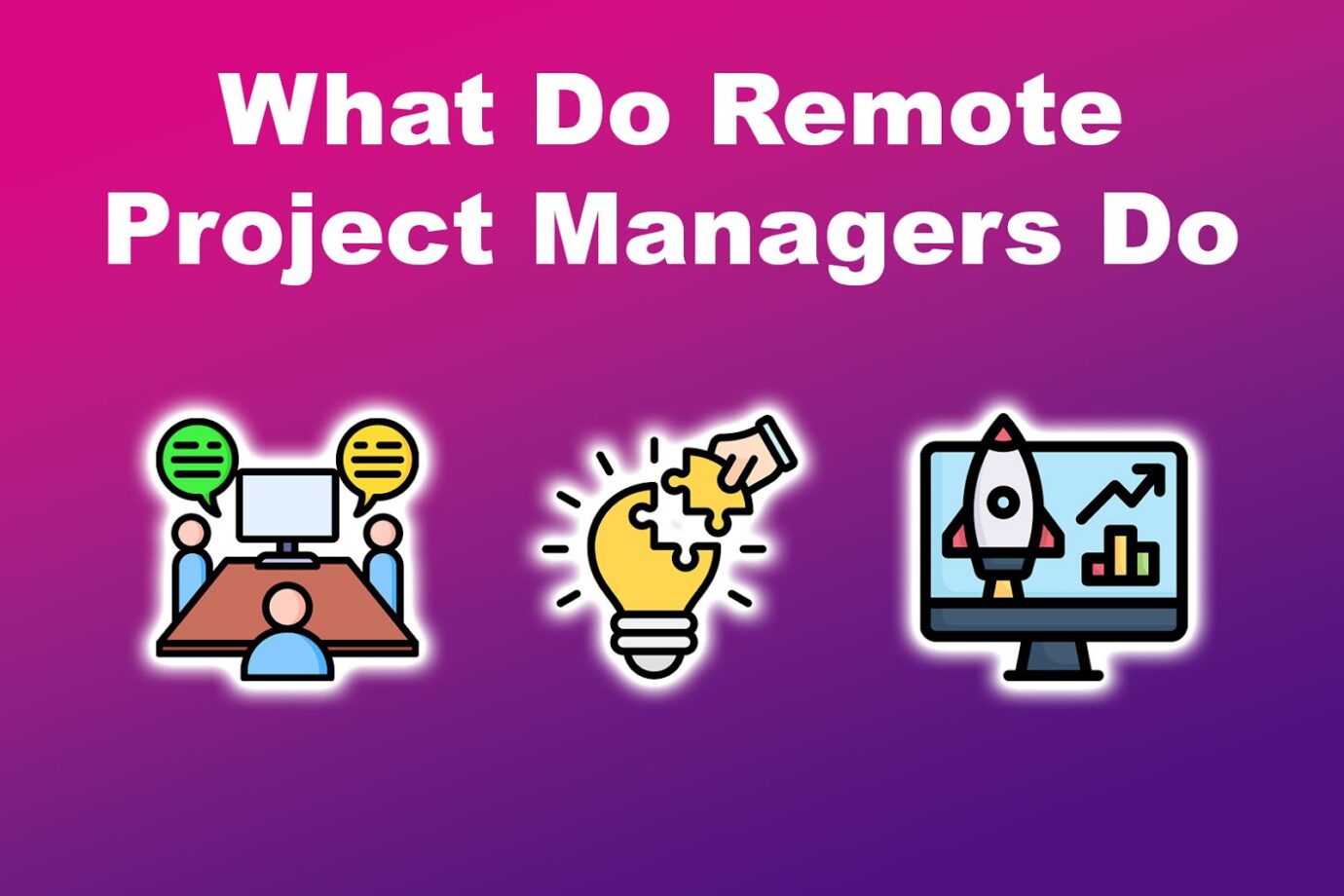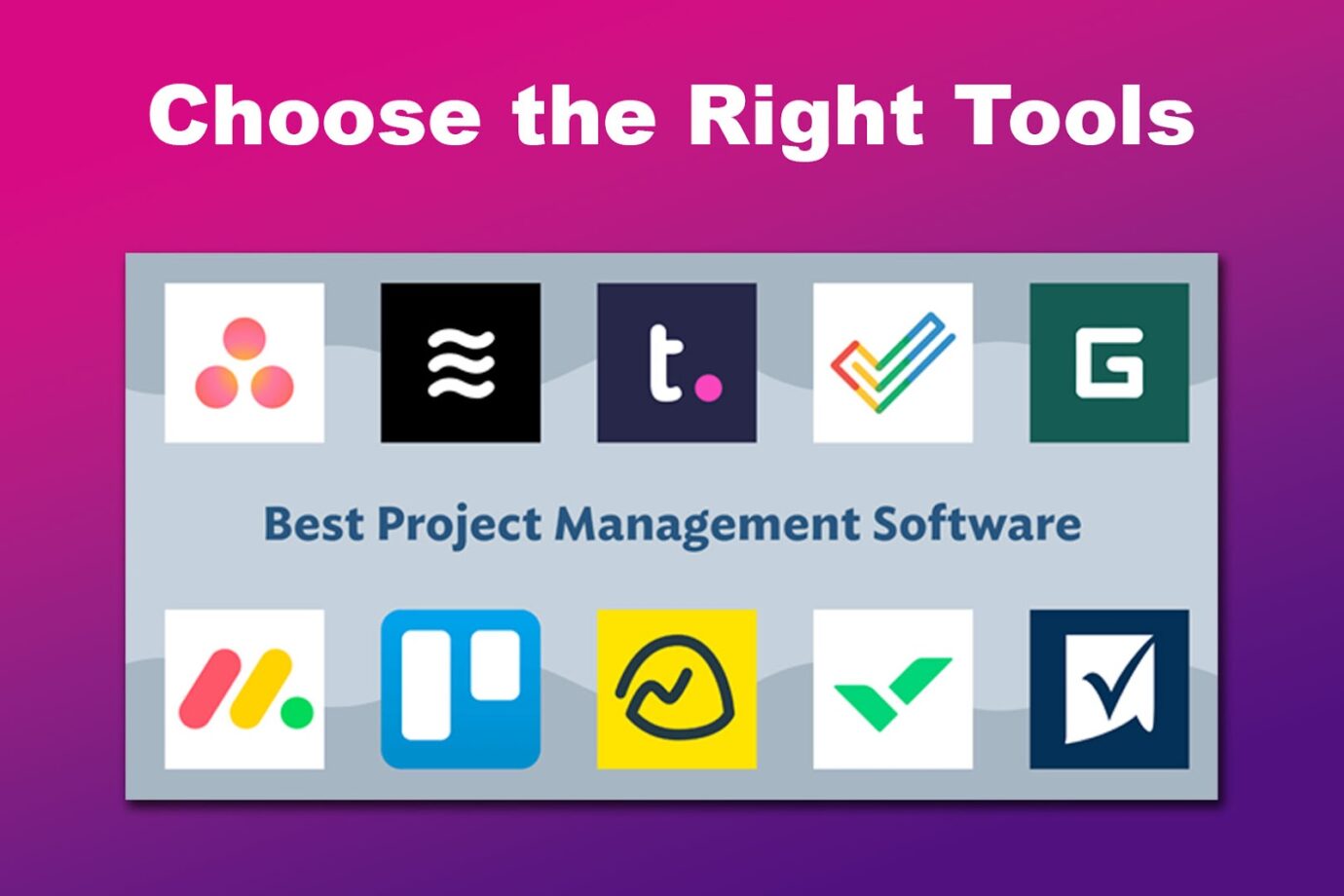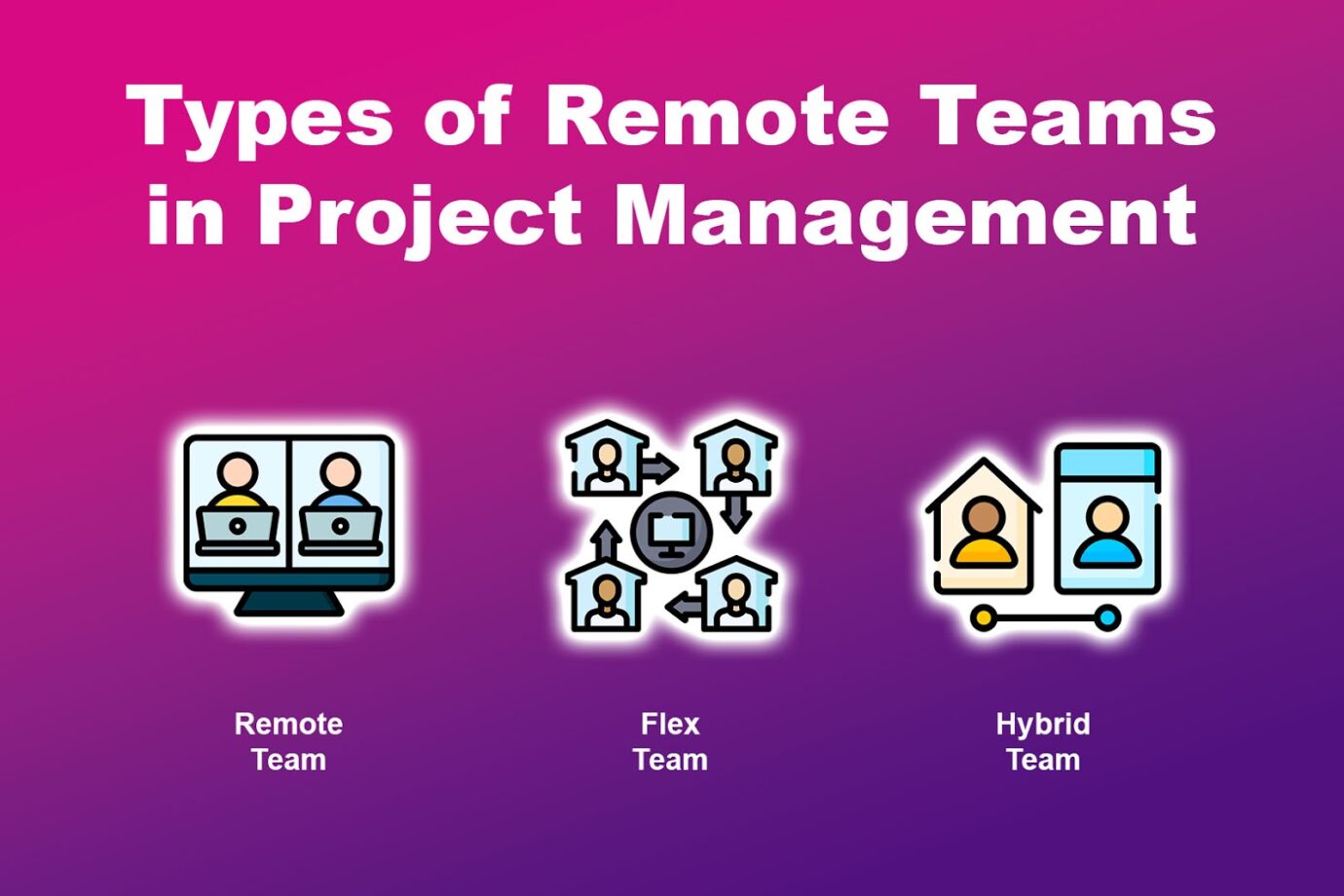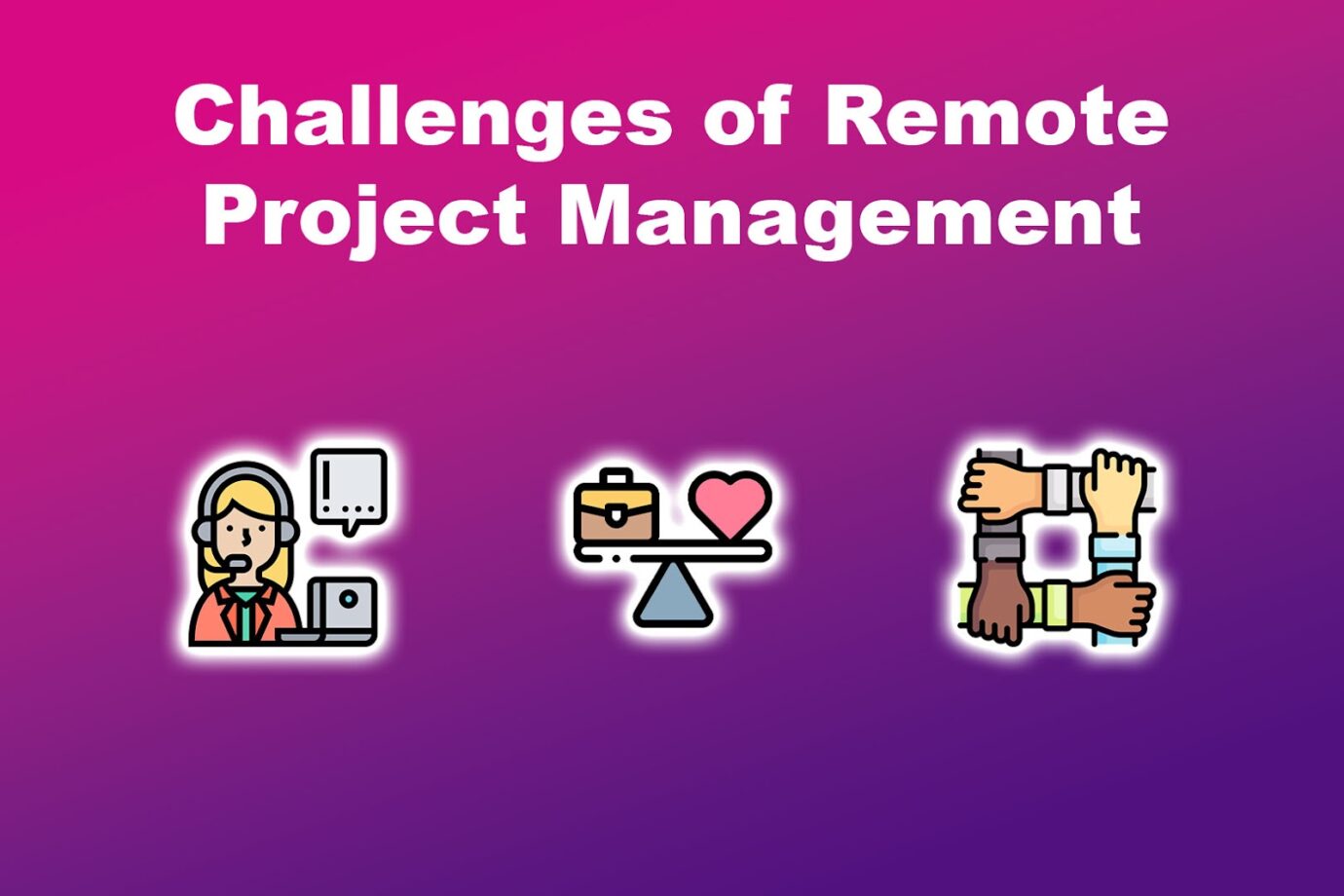Project managers plan, organize, and ensure the success of tasks. In the past, project managers were typically required to work in an office setting, overseeing their team and collaborating with stakeholders.

With the increasing popularity of remote work, there are concerns about whether they can effectively work in a virtual setting. So can remote managers work remotely? This article will address this question and discuss the roles and challenges of remote project managers.
Let’s find out more about the work from home project managers.
Can Project Managers Work Remotely?
Yes, project managers can work remotely, provided they establish clear communication channels and build a rapport with the team. They can use project management tools like Asana and Slack to help team members connect and build relationships.
As a project manager, you can also use these tools to delegate tasks, manage schedules, and track progress.
The top companies that hire remote project managers include Amazon, Hubspot, IQVIA, and Coinbase.
It’s worth noting that certain project management roles, such as those in construction, may not be suitable for remote work. These types of projects typically require site visits and frequent in-person meetings.
Alternatively, you can follow a hybrid-remote work schedule to better manage your tasks.
What Do Remote Project Managers Do?

Here are the things remote project managers do:
- Solve Problems.
Remote managers are responsible for identifying and resolving potential issues. This includes analyzing risks and resolving any problems arising during a project. - Planning a Project.
Another role of remote project managers involves planning and organizing projects. They define scope, set objectives, identify deliverables, and create project timelines. - Monitor Progress.
Remote managers track individual tasks and project progress to ensure everything is according to plan, especially the project’s timeline, quality, and budget. - Allocate Resources.
Remote work project managers allocate resources to ensure the project is completed on time and within the budget. Allocating resources includes managing the team, equipment, and materials required for the project. - Communicate.
Work-from-home project managers communicate with team members, stakeholders, and clients using messaging apps, email, and video conferencing.
How to Do Project Management Remotely
These are the steps to do project management remotely:
Step 1: Set Clear Expectations
Clearly define project goals, deadlines, roles, and responsibilities to avoid confusion and ensure everyone is on the same page.
Step 2: Choose the Right Tools

Ensure your team has access to user-friendly tools to help them stay organized and productive.
Check out the best tools for virtual assistants here.
Step 3: Ensure Everyone Is Accountable for Their Tasks
Regularly schedule progress updates and performance evaluations to hold team members accountable and ensure their commitment to the project’s success.
Step 4: Communicate
Set clear communication protocols, such as email or messaging apps. Also, encourage frequent communication among team members so everyone is up-to-date with the latest project developments. This way, you can ensure smooth progress.
Step 5: Schedule Check-Ins
Regular check-ins are essential to review progress, discuss concerns, or provide support and guidance. If you assign tasks to your team members and do not check on them, they may feel undervalued and lack motivation to work on their responsibilities.
Step 6: Manage Expectations
Be realistic about what can be accomplished within a given timeframe. Set achievable goals and communicate any changes as soon as possible. Also, be willing to make adjustments as needed.
Step 7: Track Progress
Continuously monitor progress to evaluate performance and identify areas for improvement within your team. Learn more about how to do project management remotely from Forbes.
To monitor your employees’ progress, you can use project management tools for remote workers.
Read more about managing a distributed team here.
3 Types of Remote Teams in Project Management
There are three types of remote project teams, so you can select which suits your company culture and meets your employee requirements.
Here is an in-depth explanation of the three types of remote project teams:

- Hybrid Team.
A hybrid team includes both on-site and remote team members. - Flex Team.
Employees can work from home or in the office in a flex team. They have the flexibility to choose where to work from. - Fully Remote Teams.
This team operates remotely with no physical office. All communication is done online.
How to Choose the Right Remote Project Manager
If you’re considering hiring a remote project manager, there are steps you can take to ensure they can effectively fulfill their responsibilities outside of the office.
Remember, remote work is increasingly becoming a norm, so you should open your doors to accepting this work setup.
Follow these steps to hire the right remote project manager:
Step 1: Outline Your Project Needs
Define the project’s scope and your manager’s responsibilities. Also, identify the qualifications, skills, and experience required for the role.
This way, you can find a manager who shares your vision and expertise to bring your dream to life.
Step 2: Evaluate Experience
Select a project manager with a proven track record in managing remote projects. Evaluate their experience based on the size, complexity, and success of past projects.
Step 3: Assess Communication Skills
Prioritize candidates who clearly articulate ideas, provide feedback, and inform all stakeholders. They should also excel in written and verbal communication since they will interact with clients and team members.
Step 4: Check Leadership Skills
A remote project manager should be able to manage and motivate team members. Look for someone with strong leadership and problem-solving skills who can lead by example and foster teamwork.
Step 5: Cultural Fit
Ensure the candidates fit your company’s culture and values and align with your mission and goals.
Step 6: Seek References
Ask for references from previous employers or clients to verify the candidate’s skills, experience, and performance levels. This will give you deeper insights into their track record and ability to deliver projects successfully before hiring.
These steps also apply if you’re looking for an email marketing manager.
Challenges of Remote Project Management
While project managers can work remotely, they may encounter unique challenges, from technological issues to loneliness and security concerns.

Here is a detailed explanation of the challenges of remote project management:
- Technological Glitches.
Remote project managers rely on technology to accomplish tasks, communicate, and track projects. Technical issues like software malfunctions or poor internet connection can disrupt workflow and productivity. - Security Issues.
Project managers working remotely must access sensitive information and data, which may be difficult to protect from cybersecurity and data breaches when the project manager uses a computer not regulated by the office. - Communication Problems.
Remote work can lead to communication challenges such as misinterpretation of messages, lack of face-to-face communication, and difficulty building rapport with team members. - Poor Work-Life Balance.
Remote work can make it difficult for project managers to separate their work and personal lives, resulting in poor work-life balance. This can lead to burnout and reduced productivity and quality of work. - Team Building.
Project managers working remotely often struggle to build a strong, cohesive team due to the lack of in-person interactions, making collaboration difficult. - Loneliness.
Remote work can be isolating, and project managers may feel disconnected from their team, which can lead to loneliness and affect their ability to lead the team effectively.
Check this LinkedIn article to find out how to resolve remote work project management risks.
Project Managers Can Work Remotely
Remote project management is achievable if done correctly. Project managers must communicate effectively, promote team collaboration, and use the correct tools to ensure success. Tools like Asana and Slack can help manage schedules, delegate tasks, and track progress.
This article has also compiled the best tips on effectively managing remote projects. By following our tips, you can work from anywhere in the world.
But keep in mind that there may be challenges working remotely. Project managers may sometimes experience loneliness, poor work-life balance, and technological glitches.